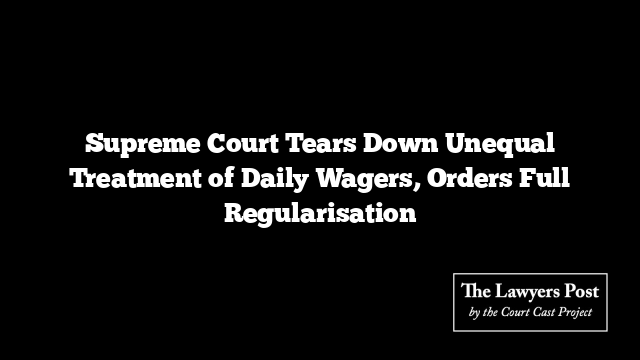The Supreme Court has drawn a sharp line against what it called the “conscious denial” of rights to long-serving daily wage workers, ruling that selective regularisation within the same establishment is unconstitutional and a breach of equity.
A bench of Justices Vikram Nath and Sandeep Mehta was hearing the appeal of five Class-IV staff members and a driver, who had been working since the late 1980s with the state commission but were repeatedly denied regularisation. While others in identical roles were absorbed on vacant posts, the appellants were left hanging under the pretext of financial constraints and a ban on new posts.
The High Court had upheld the State’s stand, pushing the workers to knock on the doors of the top court.
In a strongly worded ruling, Justice Nath wrote that the State, as a constitutional employer, carries a heightened responsibility:
“To keep some workers on daily wages while regularising others in the same setup, despite comparable tenure and duties, is not just unfair but a violation of Articles 14, 16 and 21. Regularisation cannot be treated as a matter of charity—it is a constitutional obligation.”
The Court emphasised that governments must plan budgets to absorb perennial workers into sanctioned positions and not delay compliance with judicial mandates. It laid down an enforceable scheme requiring creation of supernumerary posts where necessary, full regularisation, continuity of service, back wages, and future financial benefits.
The ruling directed that the appellants be regularised with effect from 2002, receive back wages, and enjoy all consequential benefits. Where posts are lacking, the State and the successor commission were ordered to create additional positions to ensure compliance without caveats.
The judgment makes it clear: fairness in public employment cannot be optional, and decades of service on daily wages cannot be brushed aside under the guise of budgetary excuses.




